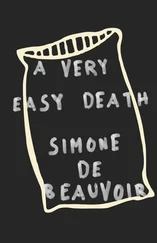‘Really, you are too hard—you have too much Party spirit altogether. There are parents and children who love one another without having the same political opinions.’
‘It is not a question of differing political opinions. You are changing sides out of mere ambition and a desire to succeed at any price. That is what is so tenth-irate.’
‘No, no, not at all. My views have changed! Maybe I’m easily influenced but truly I have come to see things in another light. I promise you I have!’
‘Then you should have told me about it earlier. Not have carried out your wire-pulling behind my back and then face me with a fait accompli. I shall never forgive you that.’
‘I didn’t dare. You have a way of looking at me that frightens me.’
‘You always used to say that: it has never been a valid excuse.’
‘Yet you used to forgive me. Forgive me again this time. Please, please do. I can’t bear it when we are against one another, you and I.’
‘There’s nothing I can do about it. You have acted in such a way that I cannot respect you any more.’
His eyes began to grow stormy: I preferred that. His anger would keep mine up.
‘Sometimes you say the cruellest things. For my part I have never wondered whether I respected you or not. You could do bloody-fool things as much as ever you liked and I shouldn’t love you any the less. You think love has to be deserved. Oh yes you do: and I’ve tried hard enough not to be undeserving. Everything I ever wanted to be—a pilot, a racing driver, a reporter: action, adventure—they were all mere whims according to you: I sacrificed them all to please you. The first time I don’t give way, you break with me.’
I cut in. ‘You’re trying to wear me down. Your behaviour disgusts me: that is why I don’t want to see you any more.’
‘It disgusts you because it goes against your plans. But after all I’m not going to obey you all my life long. You’re too tyrannical. Fundamentally you have no heart, only a love of power.’ His voice was full of rage and tears. ‘All right! Good-bye. Despise me as much as you bloody well like—I shall get along without you very well.’
He stalked towards the door: slammed it behind him. I stood there in the hall, thinking, ‘He will come back.’ He always came back. I should no longer have had the strength to stand out against him; I should have burst into tears with him. After five minutes I went back to the library; I sat down, and I wept, alone. ‘My little boy …’ What is an adult? A child puffed with age. I plucked the years away from him and saw him at twelve again: impossible to hold anything against him. Yet now he was a man. There was not the slightest reason to judge him less severely than anyone else. Had I a hard heart? Are there people who can love without respect? Where does respect begin and end? And love? If he had failed in his university career, if he had led a common-place, unsuccessful life, my affection would never have failed him: because he would have needed it. If I had come to be of no use to him any longer, but had remained proud of him, I would cheerfully have gone on loving him. But now he escapes me, and at the same time I condemn him. What have I to do with him?
Sadness came down on me again, and it never left me. From that time on when I stayed late in bed it was because, unsupported, I was reluctant to come to a waling knowledge of thee world and of my life. Once I was up I was sometimes tempted to go back to bed again until the evening. I flung myself into my work. I stayed at my desk for hours and hours on end, keeping myself going with fruit-juice. When I stopped at the end of the afternoon my head was on fire and my bones hurt. Sometimes I would go so deeply to sleep on my divan that on waking I felt dazed and intensely distressed—it was as though my consciousness, rising up secretly from the darkness, was hesitating before taking flesh again. Or else I stared round at these familiar surroundings with unbelieving eyes—they were the illusory, shimmering other side of the void into which I had sunk. My gaze lingered with astonishment upon the things I had brought back from every part of Europe. Space had retained no mark of my journeys and my recollection would not trouble to call them to mind; and yet there they were, the dolls, the pots, the little ornaments. The merest trifles fascinated me and preoccupied my mind. The juxtaposition of a red scarf and a violet cushion: when did I last see fuchsias, with their bishop’s and their cardinal’s robes and their long frail penises? When the light-filled convolvulus, the simple dog-rose, the dishevelled honeysuckle, the narcissus with astonished, wide-open eyes in the midst of its whiteness—when? There might be none left on earth, and I should know nothing about it. Nor water-lilies on the lakes nor buckwheat in the fields. All around me the world lay like an immense hypothesis that I no longer verified.
I wrenched myself out of these dark clouds: J went down into the streets. I looked at the sky, the shabby houses. Nothing moved me at all. The moonlight and the sunset, the smell of showery spring and hot tar, the brilliance and the changing of the year: I have known moments that had the pure blaze of a diamond. But they have always come without being called for. They used to spring up unexpectedly, an unlooked-for truce, an unhoped-for promise, cutting across the activities that insisted upon my presence; I would enjoy them almost illicitly, coming out of the lycée, or the exit of a métro, or on my balcony between two sessions of work, or hurrying along the boulevard to meet André. Now I walked about Paris, free, receptive, and frigidly indifferent. My overflowing leisure handed me the world and at the same time prevented me from seeing it. Just as the sun, filtering through the closed Venetian blinds on a hot afternoon, makes the whole magnificence of summer blaze in my mind; whereas if I face its direct harsh glare it blinds me.
I went home: I telephoned André, or he would telephone me. His mother was more pugnacious than ever; he was seeing old school-fellows, walking, gardening. His cheerful friendliness depressed me. I told myself that we should meet again exactly where we had been before, with this wall of silence between us. The telephone—it is not a thing that brings people nearer: it underlines their remoteness. You are not together as you are in a conversation, for you do not see one another. You are not alone as you are in front of a piece of paper that allows you to talk inwardly while you are addressing the other—to seek out and find the truth. I felt like writing to him: but what? Anxiety began to mingle with my distress. The friends to whom I had sent my book ought to have written to tell me about it: not one had done so, not even Martine. The week after André left there were suddenly a great many articles dealing with it. I was disappointed by Monday’s, vexed by Wednesday’s, quite crushed by Thursday’s. The harshest spoke of wearisome repetition, the kindest of ‘an interesting restatement’. Not one had grasped the originality of my work. Had I not managed to make it clear? I telephoned Martine. The reviews were stupid, she said; I should take no notice of them. As for her own opinion, she wanted to wait until she had finished the book before letting me know it: she was going to finish it and think it over that very evening, and the next day she would be coming to Paris. I hung up with a bitter taste in my mouth. Martine had not wanted to talk to me over the telephone: so her opinion was unfavourable. I could not understand. I do not usually delude myself about my own work.
Three weeks had passed since our meeting in the Parc Montsouris—three weeks that counted among the most unpleasant I had ever known. Ordinarily I should have been delighted at the idea of seeing Martine again. But I felt more anxious than I had when I was waiting for the results of the agrégation. After the first quick civilities I plunged straight in. ‘Well? What do you think of it?’
Читать дальше












